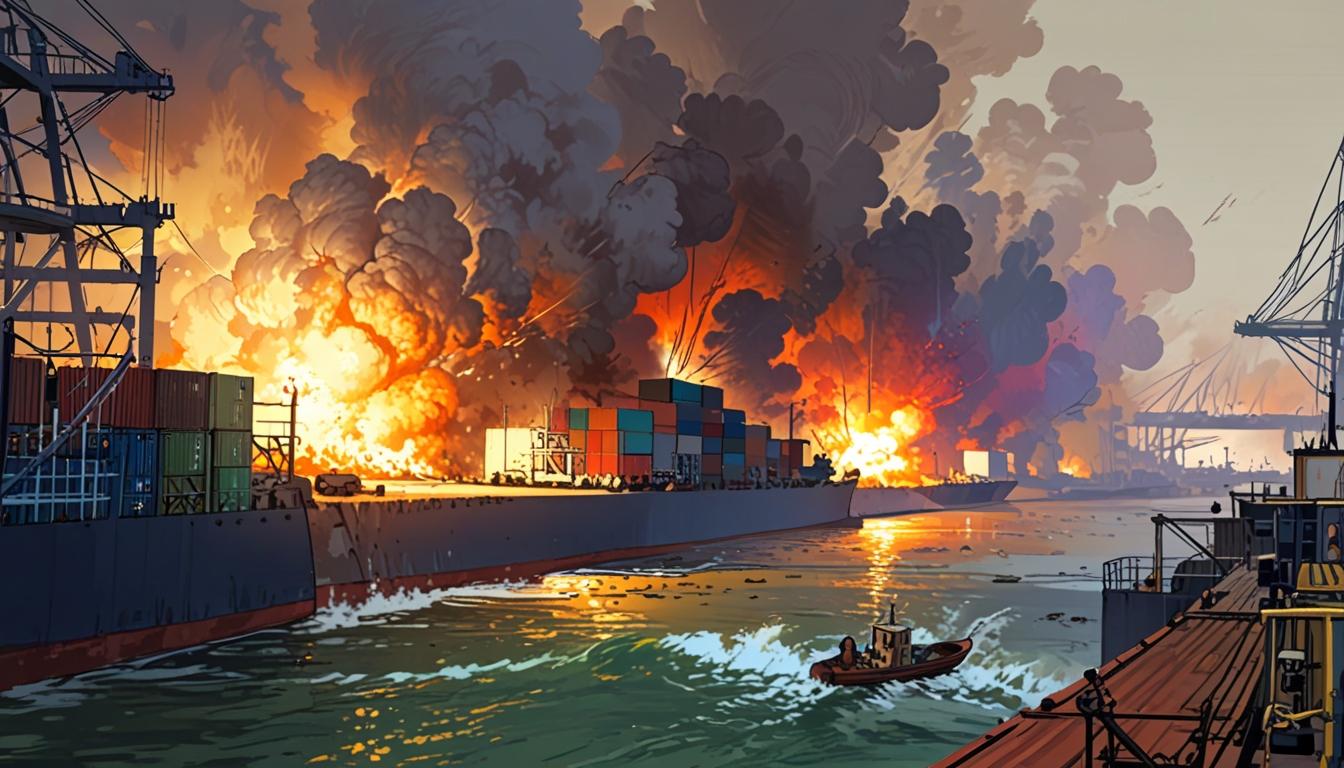An explosion at a munitions company in Isfahan, Iran, on Tuesday has heightened concerns among Iranian journalists about an intensifying media crackdown, particularly following a series of recent security incidents. The blast at the Ava Nar Parsian chemicals company resulted in one death and two injuries. This incident follows a thwarted cyber-attack on Iran's communications infrastructure on Sunday and a massive explosion at the strategic Shahid Rajaee port near Bandar Abbas on Saturday, which has left 65 people dead and over 1,000 injured.
The Shahid Rajaee port explosion, initially challenging to control, involved a fire that Iranian officials announced on Tuesday had been contained after four days, without toxic substances leaking into the Persian Gulf. The port, covering around 2,400 hectares and with an annual capacity of handling 70 million tonnes of cargo, processes approximately half of Iran’s imports. It is currently congested with up to 130,000 containers due to processing delays blamed on inadequate infrastructure, a situation highlighted recently by Iranian President Masoud Pezeshkian.
Iranian authorities have dismissed foreign interference in the port blast, instead attributing the cause to negligence involving unlabelled combustible chemicals improperly stored, which were undeclared to customs. An Iranian MP who inspected the blast site estimated the likelihood of sabotage at just 1%. The Islamic Revolutionary Guards Corps’ naval branch categorically denied that military goods passed through the port, asserting it was purely commercial.
The Tehran prosecutor’s office has brought criminal charges against media outlets and activists for allegedly spreading "illegal news" concerning the explosion. Mizan news agency, the judiciary's official media outlet, warned of legal consequences for violations. Tehran-based journalists, speaking to The Guardian under anonymity due to safety concerns, revealed that reporting restrictions had been imposed, including bans on ground reporting and sharing information on social media. A reporter commented, “In face of a tragedy such as this, what is there to hide? Either the death toll is way more than 70, or they are suppressing the real cause of the explosion. Following the filing of charges, our newsrooms are also self-regulating in fear that they’ll be facing legal consequences.”
The official investigation committee into the port explosion confirmed "failures in observing safety principles and passive defence," with ongoing work by four parliamentary committees exploring various possible causes, including negligence, intent, and potential involvement by Israel, which some have suggested aimed to disrupt US-Iran nuclear negotiations. Mohammad Mehdi Shahriari, a national security commission member, noted that these possibilities are being examined thoroughly, while Mohammad Baqer Qalibaf, the parliament speaker, indicated that the investigation is also considering whether negligence or deliberate action played a role.
Regarding the Tuesday explosion in Isfahan, no official explanation has been provided, and the site falls under the oversight of Iran’s national security council. Officials have merely confirmed that the goods involved in the Shahid Rajaee port incident lacked the digitised reference codes mandated by Iranian customs law.
The unfolding events—ranging from the strategic port explosion to the recent factory blast and attempted cyber-attack—are occurring amid significant security and political sensitivity, with information dissemination tightly controlled and scrutiny from various Iranian authorities increasing. The Guardian is reporting on these developments as part of ongoing coverage of unfolding incidents in Iran.
Source: Noah Wire Services
